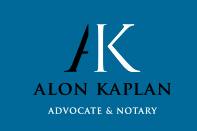
For effective trust services and estate planning, start with understanding different trust types and their tax advantages. Prioritize clear trust deeds, guarantee compliance with Israeli laws, and avoid probate through strategic use. Choose a qualified trustee skilled in financial management and conflict resolution, and maintain consistent communication with beneficiaries. Regularly review trust performance, adapting strategies as needed while protecting privacy in line with Israeli regulations. To enhance your planning strategy even further, continue to explore detailed guidance.
Key Takeaways
- Evaluate trustee qualifications, focusing on expertise in financial management and conflict resolution, for effective trust administration.
- Utilize offshore trusts in jurisdictions like Nevis for enhanced asset protection and creditor barriers.
- Transfer assets into trusts promptly for seamless management and to leverage potential tax efficiencies.
- Regularly review trust strategies with financial advisors to adapt to market changes and meet financial goals.
- Implement strong privacy measures, including encryption and access controls, to protect trust-related personal data.
Understanding the Basics of Trusts in Israel

Trusts in Israel are structured under a well-established legal framework, providing a reliable mechanism for asset management and estate planning. You’ll find that trusts are grounded in legislation dating back to the Charitable Trusts Ordinance of 1923. A trust involves a grantor who transfers assets to a trustee, who then manages these assets for the beneficiaries’ benefit. Trustees must ensure accurate reporting to avoid penalties, as outlined in Chapter 4 of the Israeli Income Tax Ordinance. This arrangement comes with several trust benefits, including tax recognition since 2006, which can lead to potential tax efficiencies. The trust definitions in Israeli law are clear, recognizing different trusts based on the residency of those involved. Although trusts aren’t legal entities, they’re treated in this manner for tax purposes, offering structured management and protection of assets while ensuring compliance with the legal requirements. The Blind Trusts mechanism is also a relevant topic, especially for public officials, to prevent conflicts of interest and ensure that asset management is handled independently.
Choosing the Right Type of Trust for Your Estate
When contemplating how to effectively manage your estate, choosing the right type of trust is a critical decision that can profoundly impact your financial planning and asset distribution. Understanding trust types and trust purposes is key.
For instance, a Foreign Resident Trust is ideal if all parties are non-Israeli residents, while a Relative’s Trust focuses on family relationships for wealth preservation. If you have Israeli beneficiaries, an Israeli Resident Beneficiary Trust suits your needs, as it’s subject to Israeli taxation.
Meanwhile, Israeli Resident Trusts require you to take into account Israeli tax laws fully. Assess residency status, tax objectives, and asset protection goals when selecting a trust. This guarantees your estate plan accommodates family dynamics and complies with legal requirements efficiently. Firms like Alon Kaplan Advocate & Notary, known for their expertise in trust law, can provide valuable guidance in navigating these complexities. Given the importance of careful planning to ensure smooth property distribution, consulting with a professional is essential when developing a comprehensive estate plan in Israel.
Leveraging Tax Benefits Through Trust Planning
Effectively managing your estate often begins with selecting the appropriate trust structure, but the benefits extend beyond asset distribution. By leveraging tax benefits through trust planning, you can achieve significant tax shifting and estate minimization. Irrevocable trusts, for example, allow you to shift income to beneficiaries in lower tax brackets, reducing overall tax liability. Additionally, they help minimize estate taxes by excluding assets from the beneficiaries’ estates. Wealth Enhancement Group focuses on wealth management and financial planning, which can provide valuable insights into effective trust and estate planning strategies. Understanding trust taxation is essential, as revocable trusts are taxed as part of the grantor’s estate, whereas irrevocable trusts are taxed independently. Strategic use of estate tax exclusions and exemptions can further reduce tax burdens. In Israel, the Law of Return offers tax advantages for new immigrants, including a 10-year exemption on foreign income, which can be strategically integrated into estate planning.
The Role of Trustees in Effective Estate Management
A well-chosen trustee plays a vital role in effective estate management, serving as the backbone of trust administration. Trustee responsibilities include managing assets according to the trust’s terms, guaranteeing prudent investment decisions, and maintaining accurate records. Trustees should diversify investments to minimize risk and guarantee long-term growth. Grantors must transfer assets into the trust, changing the titles of the assets to the name of the trust, ensuring a seamless transition and management of the estate. Effective communication with beneficiaries is essential; providing regular updates on the trust’s status and maintaining transparency are significant. Addressing beneficiaries’ concerns promptly fosters trust and confidence. Trustees must understand and adhere to the trust document’s terms, respecting beneficiaries’ rights and acting in their best interests. By guaranteeing compliance with legal and regulatory requirements, trustees maintain the integrity of the estate, supporting its seamless administration and benefiting all parties involved. Collaborating with reputable banks and licensed trust companies ensures that trustees have the necessary expertise and resources to manage the estate effectively.
Avoiding Probate With Strategic Trust Use

Strategically using trusts in estate planning is a powerful way to avoid the often cumbersome and costly probate process. Many people hold trust misconceptions, believing they’re only for the wealthy, but trusts offer significant benefits to families of all income levels. Without a will, the state decides asset distribution, which can lead to unintended consequences and complications for your loved ones. Here’s how you can leverage trusts to bypass probate:
- Revocable Trusts: By transferring ownership of assets into a funded revocable trust, you can sidestep probate entirely, ensuring a smoother passage for beneficiaries.
- Living Trusts: Also known as inter vivos trusts, these allow asset distribution without the public scrutiny and delay typical of probate.
- Totten Trusts: Ideal for protecting assets from creditors while also avoiding probate, these are a practical option for those seeking privacy and efficiency. In jurisdictions like Israel, trusts have evolved to address specific cultural and legislative needs, providing further options for estate planning and protection.
Each option reduces legal fees and streamlines estate distribution.
Asset Protection Strategies With Trusts
While asset protection is a critical aspect of financial planning, using trusts offers a robust strategy to shield your wealth from potential creditors and legal threats.
Asset protection trusts are designed specifically for this purpose, safeguarding a variety of assets, including real estate and investments. Offshore trusts are particularly effective, with jurisdictions like the Cook Islands and Nevis providing strong asset shielding through stringent debtor protection laws. Ownership of assets is transferred to a Trust controlled by a Trustee, which reduces the possibility of creditors accessing the estate through judgments or liens.
Offshore trusts offer robust asset protection, leveraging strong debtor protection laws in jurisdictions like the Cook Islands and Nevis.
These offshore locations create legal barriers, making it difficult for creditors to access your assets. Properly structured, these trusts allow you to maintain control while minimizing legal exposure.
Coordinating with international legal professionals is essential to guarantee compliance and effectiveness. Ultimately, these strategies provide a secure foundation for protecting your wealth from unforeseen challenges.
Privacy Considerations for Israeli Trusts
Israel’s trust privacy framework is shaped by essential legislative instruments, particularly the Basic Law: Human Dignity and Liberty and the Protection of Privacy Law (PPL) of 1981.
The PPL sets thorough rules for protecting personal information, guaranteeing robust data security and privacy rights for individuals involved in trusts. Here’s what you need to know:
- Data Security Measures: Trust entities must implement encryption, access controls, and audit trails to protect personal data. Compliance is necessary to avoid unauthorized access and guarantee secure information handling.
- Privacy Rights: Individuals can access, correct, or delete their personal data held by trusts, safeguarding their privacy rights. Notably, the recent Amendment No. 13 introduces the concept of Especially Sensitive Data, offering additional protections for certain types of personal information within trusts.
- Regulatory Compliance: The Israel Privacy Protection Authority enforces PPL compliance, overseeing data handling and guaranteeing trusts adhere to privacy regulations. Israel’s strong wealth management opportunities, supported by modern legal frameworks, further enhance the attractiveness of its trust services.
Selecting and Appointing a Competent Trustee
How do you guarantee that the trustee you select will competently manage your trust’s assets and responsibilities?
Begin by evaluating trustee qualifications, focusing on candidates like family members, professionals, or trust institutions. Consider their expertise in financial management and conflict resolution. It’s crucial to have a framework to evaluate trustee candidates to ensure they meet the necessary criteria for managing your trust effectively. When assessing potential trustees, you might consider contacting professionals such as Avraham Simon, an advocate and notary, who has extensive experience in trust management.
Evaluate their trustee responsibilities, making sure they can manage assets, follow trust provisions, and work with third-party professionals. Assess their competency and capacity to fulfill these duties, considering their experience, track record, and time commitment.
Objectivity is vital; ensure the trustee can act in beneficiaries’ best interests without bias. Additionally, evaluate their administrative capabilities and discretion in handling confidential matters.
Finally, choose someone who offers long-term stability and can adapt to evolving legal and financial requirements.
Legal Compliance for Trust Establishment in Israel
Establishing a trust in Israel requires adherence to specific legal compliance measures to confirm the arrangement is valid and enforceable. First, meeting trust deed requirements is vital; the deed must clearly designate the trustee and outline beneficiary rights to guarantee compliance with Israeli legal standards. Second, reporting obligations demand that you report the trust’s establishment and asset placements within 90 days, detailing information about the trust parties and assets. Third, the trust deed should specify the trustee’s powers, distribution terms, and trust duration, confirming it aligns with statutory compliance and accurately reflects the settlor’s intentions. With the presence of an Israeli resident, the trust may be classified as an Israeli trust, which can have significant tax implications. Proper legal documentation and timely reporting are essential to prevent legal and tax consequences, maintaining the trust’s integrity under Israeli law.
Ongoing Trust Management and Review Practices
Ongoing trust management and review practices are essential for ensuring the trust’s assets are effectively managed and aligned with its objectives. By focusing on ongoing asset management, you adhere to the Prudent Investor Rule, managing assets with care. Separate trust and personal assets to avoid commingling, facilitating clear financial management. Engage financial advisors for strategic investment decisions, and conduct regular market analysis to adjust strategies as needed. Effective beneficiary communication is key, maintaining open dialogue and providing regular updates on trust performance. Educate beneficiaries about the trust’s terms and establish feedback mechanisms to address concerns promptly. Trustees must act in the best interests of beneficiaries, ensuring the preservation and growth of trust financial resources. Transparently report on trust operations, ensuring beneficiaries are informed. Regularly review the trust’s financial position, adapting to market conditions to fulfill its goals efficiently.
Frequently Asked Questions
How Do Trusts Impact Family Dynamics and Relationships?
Trusts greatly impact family dynamics and relationships by redefining roles and responsibilities. When you establish a trust, it alters family expectations, creating a need for effective trust communication.
This guarantees everyone understands their roles and the trust’s purpose. Trusts can strengthen family unity by fostering security and stability, but they may also lead to conflicts if not managed transparently.
Strong communication is essential to navigate potential disputes and maintain harmony.
What Are the Costs Associated With Establishing a Trust?
Trust setup expenses can considerably vary, starting from a few hundred for basic online documents to thousands with attorney assistance.
Complex configurations, such as those involving varied assets, escalate costs. Jurisdiction impacts expenses, especially offshore trusts with stringent regulations.
Trust administration fees also differ, influenced by trustee expertise and asset value.
Simplifying trust structures and utilizing online services can reduce initial costs, ensuring efficient and effective trust establishment.
Can Trusts Be Contested or Challenged in Court?
Yes, you can challenge a trust’s validity in court if you have legal grounds. Grounds include lack of capacity, undue influence, or fraud during the trust’s creation.
You must file a petition in the appropriate court and provide clear evidence supporting your claims. Legal procedures require notifying all interested parties, and outcomes depend on evidence strength.
Courts may modify or invalidate the trust based on the findings, so solid preparation is essential.
How Do Trusts Affect Eligibility for Government Benefits?
Trust eligibility for government benefits can be complex. Revocable trusts often count as assets, affecting programs like Medicaid.
In contrast, irrevocable trusts, when properly structured, don’t usually count towards asset limits, aiding eligibility.
Special needs trusts bypass asset counting for SSI and Medicaid, but distributions must be managed carefully.
Spendthrift and income-producing trusts can impact benefits based on income distribution.
Always guarantee compliance with legal and state-specific rules to maintain eligibility.
What Is the Impact of International Assets on Israeli Trusts?
When dealing with international assets in Israeli trusts, you must navigate complex international asset taxation rules.
Israeli trusts with foreign assets require careful cross-border estate planning to guarantee compliance and optimize tax benefits. The grantor’s residency and control over the trust greatly affect tax obligations.
Trusts with foreign income might avoid Israeli taxes if structured correctly, but reporting obligations are stringent, necessitating thorough understanding and adherence to Israeli tax laws and regulations.
Conclusion
In traversing the intricate landscape of trust services and estate planning in Israel, think of your estate as a legacy tree. Each branch, carefully planned and nurtured, represents your enduring impact. By understanding trust basics, selecting the right type, and guaranteeing legal compliance, you’re laying the roots for future growth. Appointing a competent trustee guarantees the branches of your estate flourish, providing privacy and avoiding probate, ultimately shielding your legacy from the winds of uncertainty.

